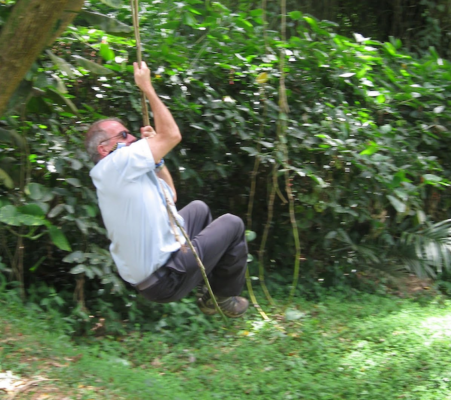Search
To search for an exact match, type the word or phrase you want in quotation marks.
A*DESK has been offering since 2002 contents about criticism and contemporary art. A*DESK has become consolidated thanks to all those who have believed in the project, all those who have followed us, debating, participating and collaborating. Many people have collaborated with A*DESK, and continue to do so. Their efforts, knowledge and belief in the project are what make it grow internationally. At A*DESK we have also generated work for over one hundred professionals in culture, from small collaborations with reviews and classes, to more prolonged and intense collaborations.
At A*DESK we believe in the need for free and universal access to culture and knowledge. We want to carry on being independent, remaining open to more ideas and opinions. If you believe in A*DESK, we need your backing to be able to continue. You can now participate in the project by supporting it. You can choose how much you want to contribute to the project.
You can decide how much you want to bring to the project.

One of the characteristics of symbolic gestures is that in practical terms the result isn’t usually direct, short term or even foreseeable. Their objective consists in attacking the collective imaginary, or in criticising situations that seem immutable to evidence the issues with them. Rarely do they manage to change these situations from one day to the next. Symbolic gestures are either long distance races in which a symbolic position slowly gains strength until its coherence, and the incoherence of what it denounces, becomes evident, or short sharp shocks that damage and erode the strength of the adversary.
The art world often commits the error of thinking that, as we dedicate ourselves to the image, its analysis, construction and criticism, we are better than anybody at carrying out passive resistance and symbolic gestures. For example, when the city council of Reus calls for the private adjudication of the Centre d’Art Cal Massó for 100 euros a month, it’s not just shirking its public duty of culture, so much as above all valuing this type of installation in small change, corroborating this idea that is increasingly pervasive among the general public that we are not going to waste money on culture when people are being left homeless. As if the legislation concerning mortgages was directly linked to cultural policies. Promoting this mentality that your competitor, your enemy, the one that’s living off you is not the banker, nor the politician, but the cultural programmer of your town hall or the artist who receives production grants.
Another fundamental characteristic of symbolic gestures is that they need kindred spirits in order to have any strength. The city council of Reus has the kind of political support that allows them to propose this sort of policy without anybody chopping off their heads. And this support, this sticking together, is what we continually lack in the art world. Last Monday Eva González-Sancho resigned as the director of MUSAC due to the continuous political interference that she had endured. We’re talking about a professional of recognised prestige who contended for eight years with French bureaucracy, not exactly a newcomer to administration, and her criticism undoubtedly has ample grounds, as well as precedents. It was a symbolic gesture, because obviously, the Fundación Siglo behind the MUSAC will continue to manage the museum, and in the worst of the cases can appoint a politician or a technician with a lot of cheek and little shame (see Consuelo Ciscar). But its prestige could be undermined if the art world, collectively, turned its back on the institution. It seemed for once as if we were headed in that direction, with the advising committee resigning en masse in support of the outgoing director. And then wouldn’t you know it, in just one week, seven dirty days, flouting all good contractual practices, in the face of the protests of associations of museum directors and art critics, Manuel Olveira (a man of work not complications, as he himself declares) goes and accepts this arbitrary appointment.
We sleep with the enemy. When the institutions decide not to pay artists to exhibit, there is always someone who jumps on the bandwagon leaving their colleagues in the lurch. When dirty games are played in institutions, there is always someone disposed to turn a blind eye, saying that it’s important to be there and make a programme, in order not to lose these spaces. In the end what is achieved by these continuous slip ups is that we ratify the politicians so they can do whatever they feel like, because they will always find someone brimming with ego, hungry for power, who will follow their game. That the art world follows the law of the jungle, where everybody grabs their own liana and doesn’t let go, even if they see their companions being eaten by tigers. So hey let’s get on with it, let’s carry on looking for a liana for rent for 100 euros, while they continue to privatise the jungle.

For Haizea Barcenilla art doesn´t seem to exist on its own, but as being interlinked with various social systems, embedded between ideologies and forms of looking, included in exchange networks of, buying and selling, production and exhibition. When she writes criticism, she likes to extend her object of study as much as possible, understanding it through being part of it, considering what her position is. For her, it is impossible to see art without everything else, and everything else without art. And sometimes she manages to interweave the two sides.
"A desk is a dangerous place from which to watch the world" (John Le Carré)